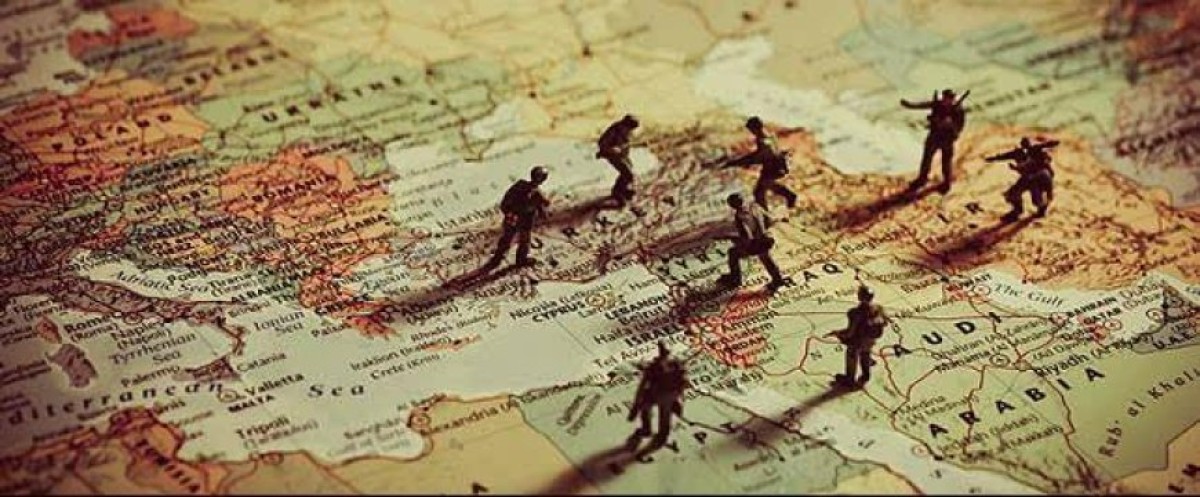 187
187
The Changing Landscape of the Middle East: A Reflection on the Recent Developments in Palestine
Over the past two months, the Middle East region has undergone a significant geopolitical shift with regards to the Palestinian crisis. The meticulously planned operation carried out by the Palestinian resistance, dubbed Al-Aqsa Storm, has effectively dismantled the security apparatus and military prestige of the Israeli regime, leaving its inherent vulnerabilities unmistakably exposed. During this period, the Israeli regime has faced severe economic strain and a tangible lack of security, leading to a myriad of challenges in its governing structure. The deteriorating security conditions have even prompted some Zionist settlers to contemplate leaving the occupied territories for good, further exacerbating the regime's calamities. Consequently, various sectors, including security, the military, and tourism, have encountered substantial setbacks.
By: A. Yeganeh
Among the many concerns that have occupied the minds of experts, the issue of energy supply for both domestic and military purposes within Israel has garnered significant attention. Particularly, the management of energy supply and the potential ramifications of fuel shortages have been subjects of great interest. Notably, the regime has long relied on bilateral energy supply agreements with Azerbaijan and Turkey, which have proven instrumental in alleviating the regime's energy problems. Over the years, Ankara, Baku, and Tel Aviv have fostered robust political and military ties and collaborated on joint ventures, with the energy sector serving as a fundamental pillar of their extensive relations.
A great obstacle to this cooperation lies in the social sensitivity surrounding the relationship with the Israeli regime, as it significantly impacts public opinion across the Middle East. Consequently, any economic link, particularly in the realm of energy supply, is susceptible to pressure from nations in the region. Therefore, these economic undertakings are usually executed discreetly or unofficially, with the aim of preventing heightened sensitivity among the region’s Muslim nations.
While publicly affirming their commitment to the Palestinian cause, Baku and Ankara ultimately prioritize their political obedience to the United States. Notably, during the recent Palestinian crisis, Turkey assumed the role of the Israeli regime's savior, single-handedly addressing its diverse energy requirements. Consequently, millions of Turkish citizens expressed their great discontent with the actions of their government. Azerbaijan, on the other hand, has maintained a longstanding relationship with the Israeli regime, engaging in extensive military and economic endeavors. Trade between Azerbaijan and Israel has witnessed significant growth in recent years, with over 140 Israeli companies operating in Azerbaijan. These commercial ties span various sectors, including energy, military-technical collaboration, agriculture, water management, science, education, and culture. Energy cooperation remains a paramount aspect of this multifaceted partnership, with Israel depending on Azerbaijan for 40% of its oil imports, facilitated by the Baku-Tbilisi-Ceyhan oil pipeline, which traverses through the port of Ceyhan in Turkey and thence to the port of Haifa.
Furthermore, Azerbaijan, with the support of the Israeli regime, has sought to destabilize Iran's northwestern borders in recent months, albeit unsuccessfully. In fact, Iran's strategic prowess has effectively countered these evil endeavors, leaving the collapsing Israeli regime fighting for its very survival within occupied territories while facing mounting international opposition.
It is crucial to acknowledge Turkey's role as a nation aspiring to lead the Turkic-speaking nations worldwide. The high-level relationship between Turkey and Azerbaijan has culminated in a coordinated decision-making process. This strategic alignment has facilitated the implementation of Erdogan's schemes to meet the Israeli regime's needs, ensuring Turkey secures the economic benefits it desperately requires. In recent years, Turkey has grappled with numerous economic challenges, compelling the country to recalibrate its stance towards the West and readily comply with US directives, hoping in vain to resolve its economic distress.
Regrettably, the bitter reality in the Palestinian saga is the recurring betrayal by seemingly friendly nations toward this sacred land, which has endured the brunt of conflict over the past 75 years.
 187
187
Comment
Post a comment for this article